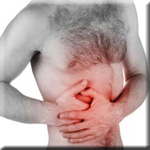Loss of cognitive function, mostcommonly associated with Alzheimer’s disease instills feelings of fear andinsecurity more than any other chronic condition, including a cancer diagnosis.Researchers publishing in the journalNeurology, the medical journal ofthe American Academy of Neurology, found that people who rate their health aspoor or fair appear to be significantly more likely to develop dementia laterin life. Is there really a mind-link association between how we feel about ouroverall health and initiation of this dreaded disease?
Researchers point to the factthat many chronic illnesses such as heartdisease and dementia develop over the course of 20 or 30 years and ourperceptions may actually influence how these conditions progress. A positivespirit and happy outlook on life may just help you avoid a host of deadlydiseases, including dementia.
Seniors Effectively Able to Predict Risk of Dementia Later in Life
People may possess a much morepowerful diagnostic tool than the plethora of diagnostic tests, dyes andpharmaceuticals used by most allopathic physicians and diagnosticians. Dr.Christophe Tzourio, director of Neuroepidemiology at the University of Bordeauxin France explained“Having people rate their own health maybe a simple tool for doctors to determine a person's risk of dementia,especially for people with no symptoms or memory problems”. His researchresults show that health and disease can be assessed more effectively by anindividual from within, as opposed to managing a set of medical results andtests.
A research study was designedwith 8,169 people, aged 65 years or older who were followed for a period ofseven years. During the study each participant was asked to rate their ownhealth, and 618 people developed dementia. The risk of dementia was 70 percenthigher in people who rated their health as poor and 34 percent higher in peoplewho rated their health as fair compared to those who rated their health asgood.
Leading an Active Life with Many Friends and Family Members LowersDementia Risk
The study also found a highercorrelation between ones health assessment and developing dementia for thoseindividuals who did not have any memory problems or other issues with thinkingskills. Those with no visible signs of cognitive decline were nearly twice aslikely to develop dementia as those who rated their health as good. Researchersfound that having a large social network along with plenty of social activitiesare associated with a decreased risk of dementia.
Dr. Tzourio concluded"… it's possible that rating one'shealth as poor might be associated with behaviors that limit social interactionand in turn accelerate the dementia process." A wealth of scientificresearch studies have found that lifestyle factors including close bonds withfamily, friends and social groups are important to lowering dementia risk inthe elderly population.





 Posted in:
Posted in: 
















